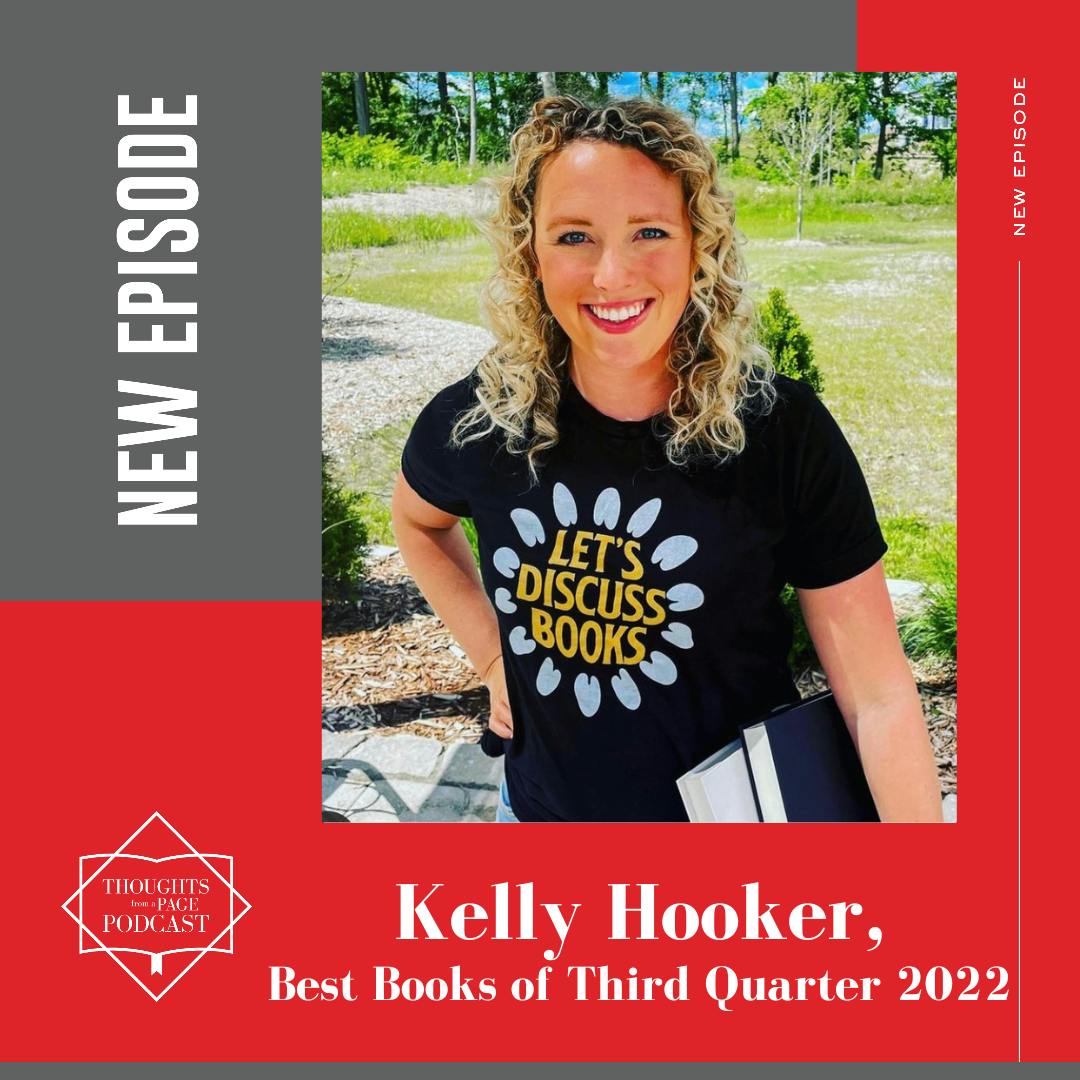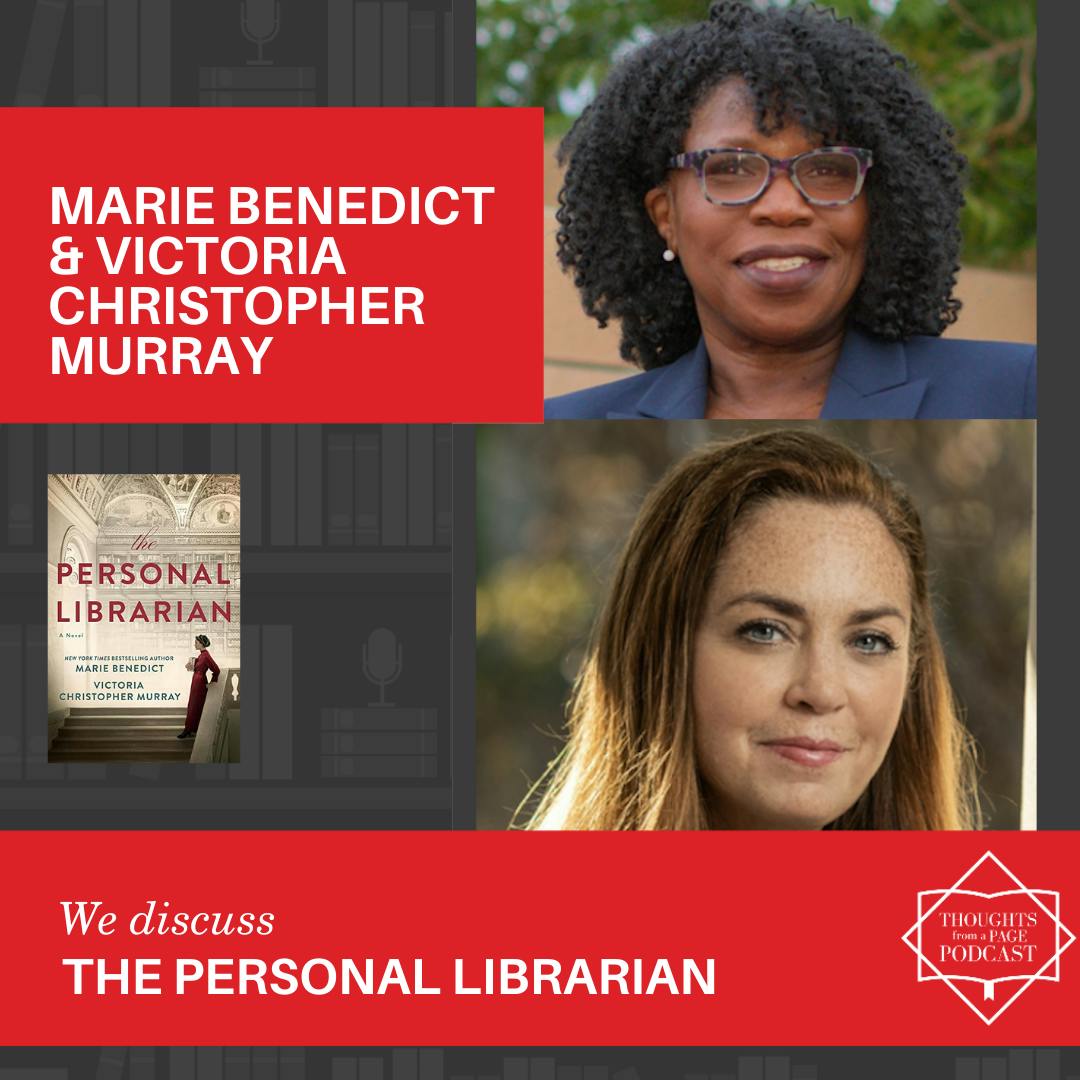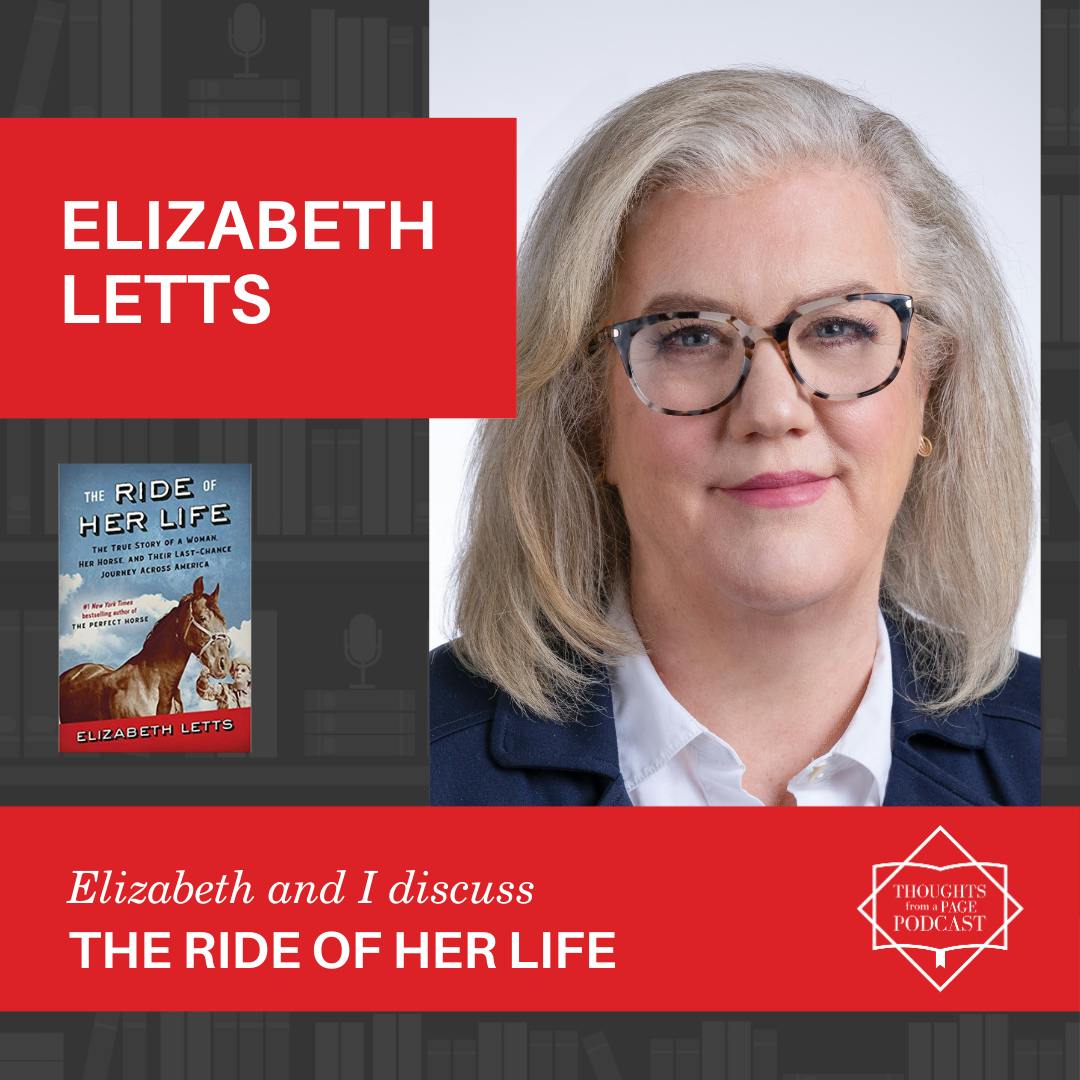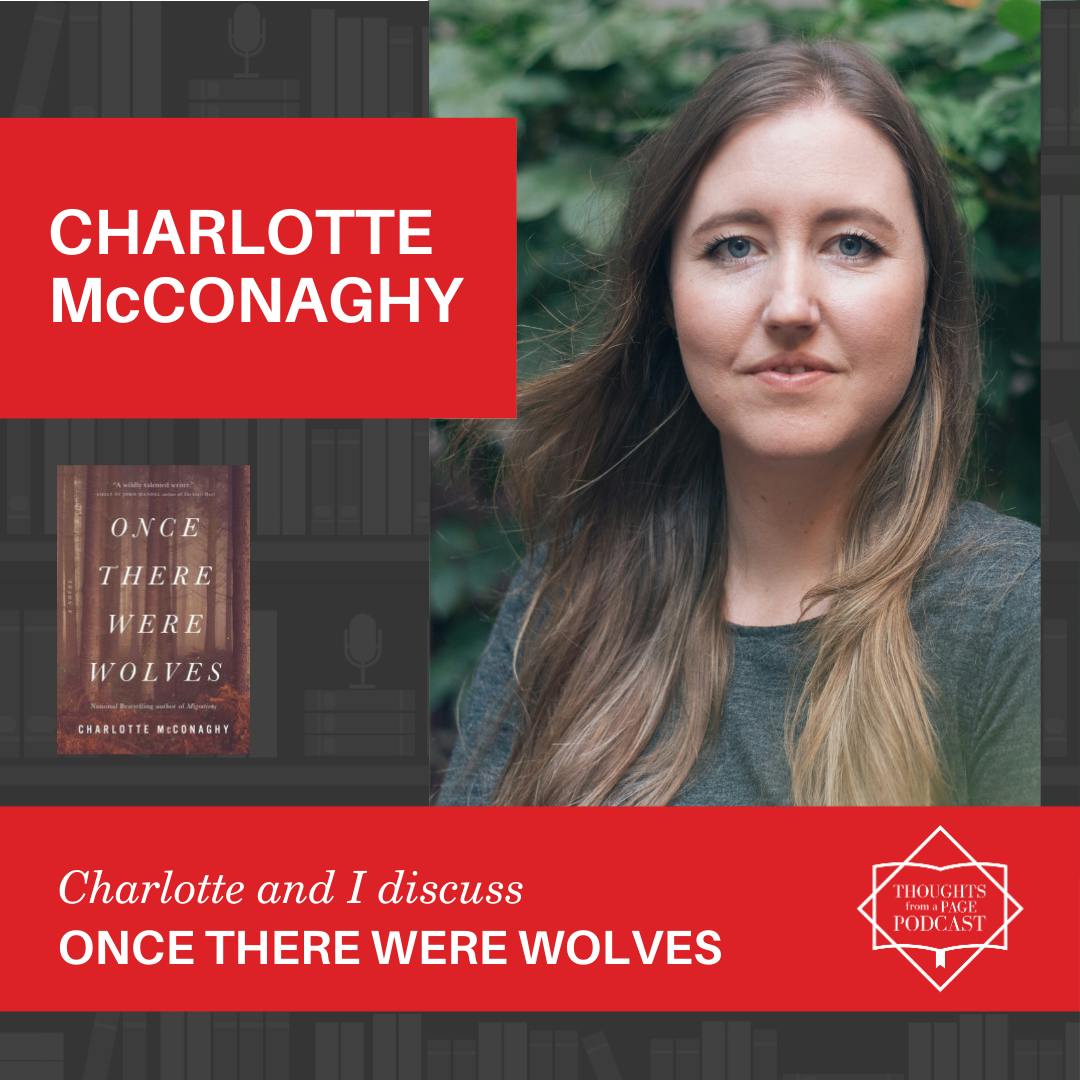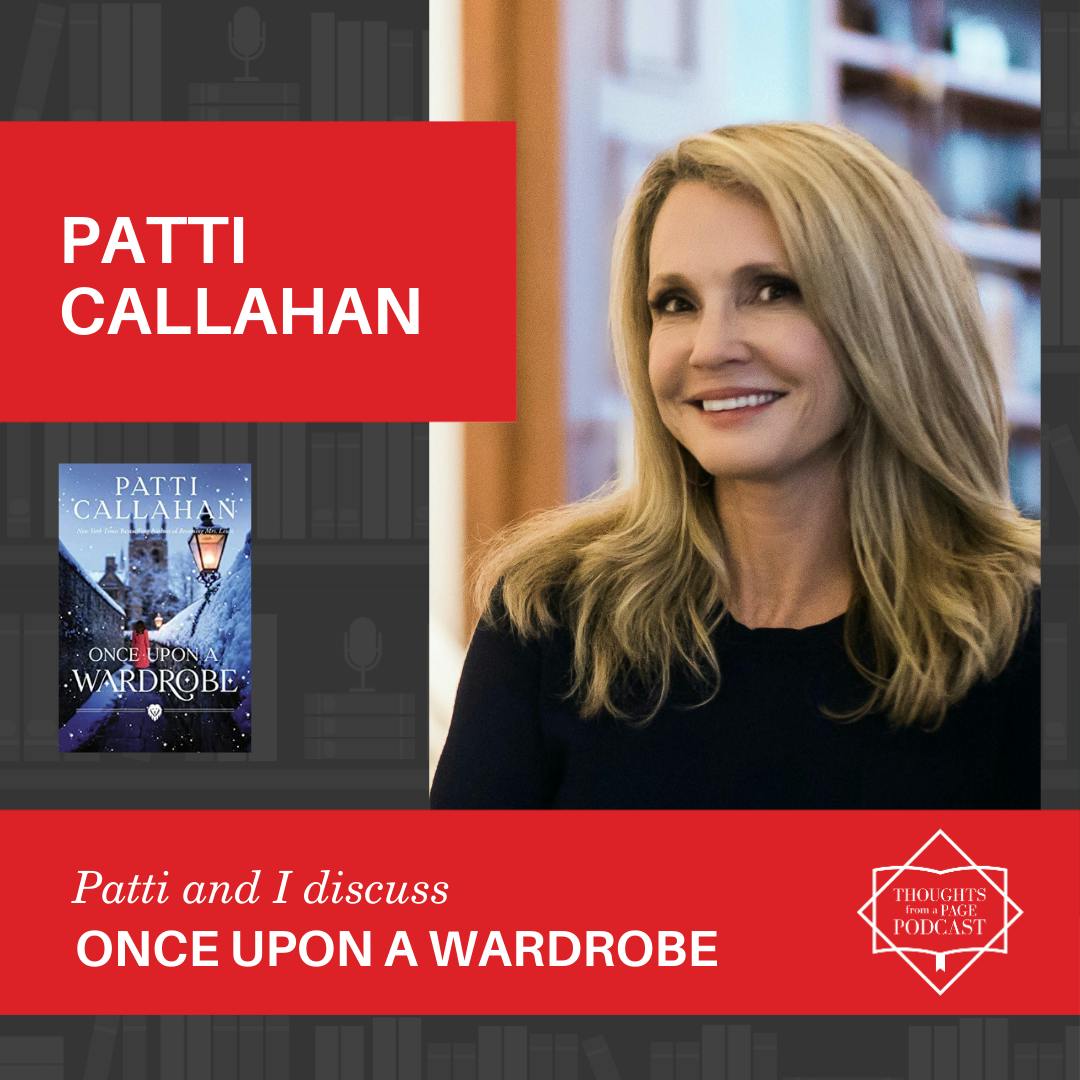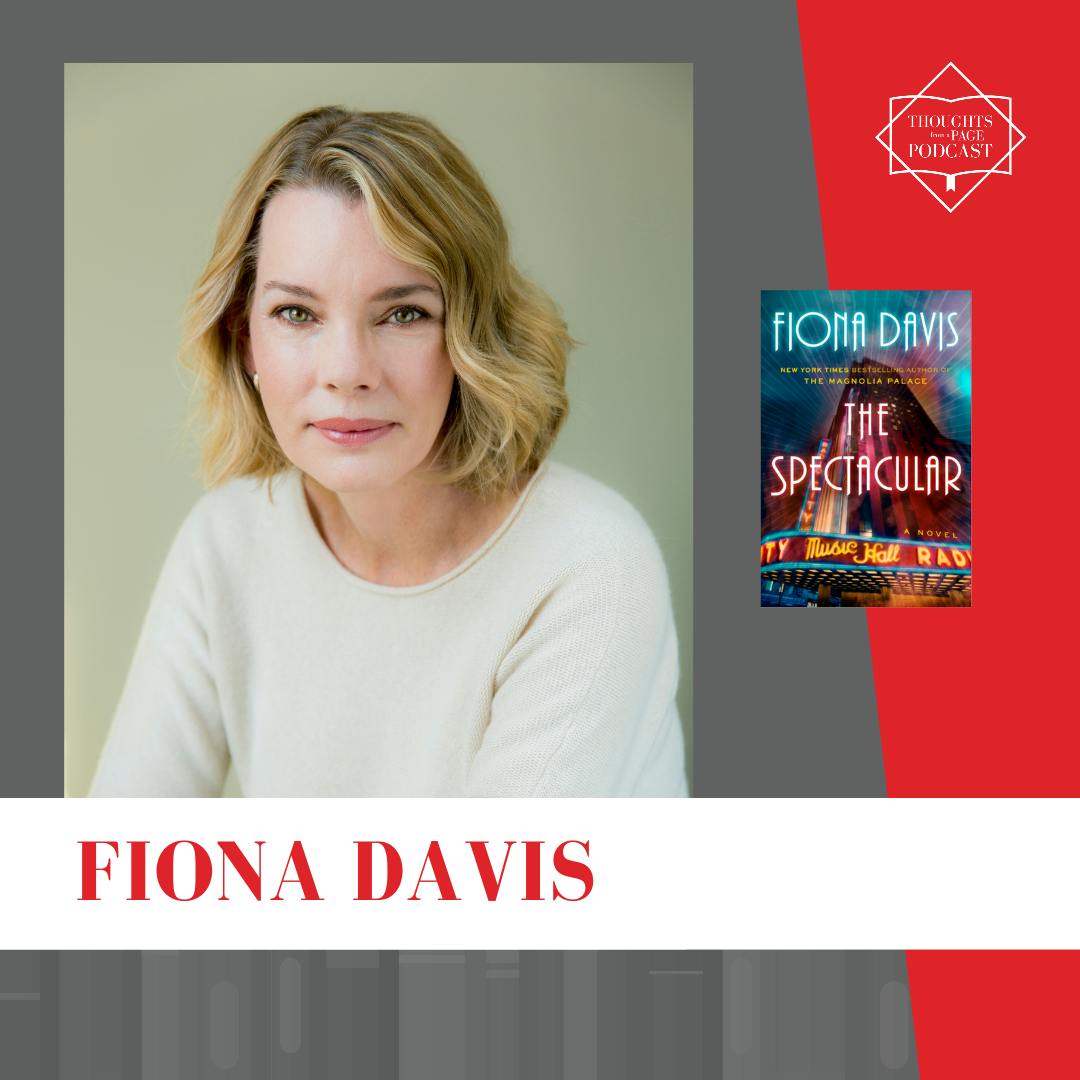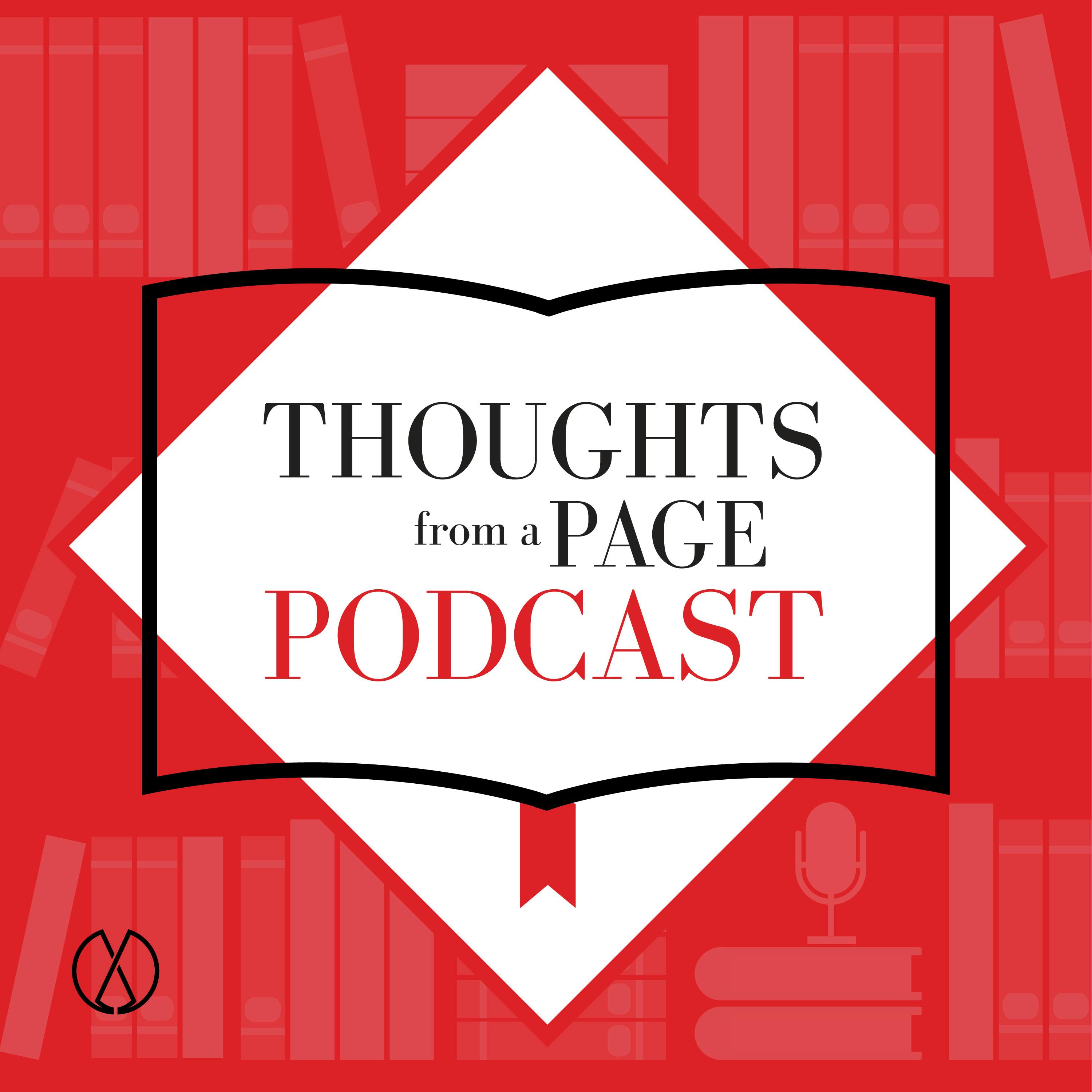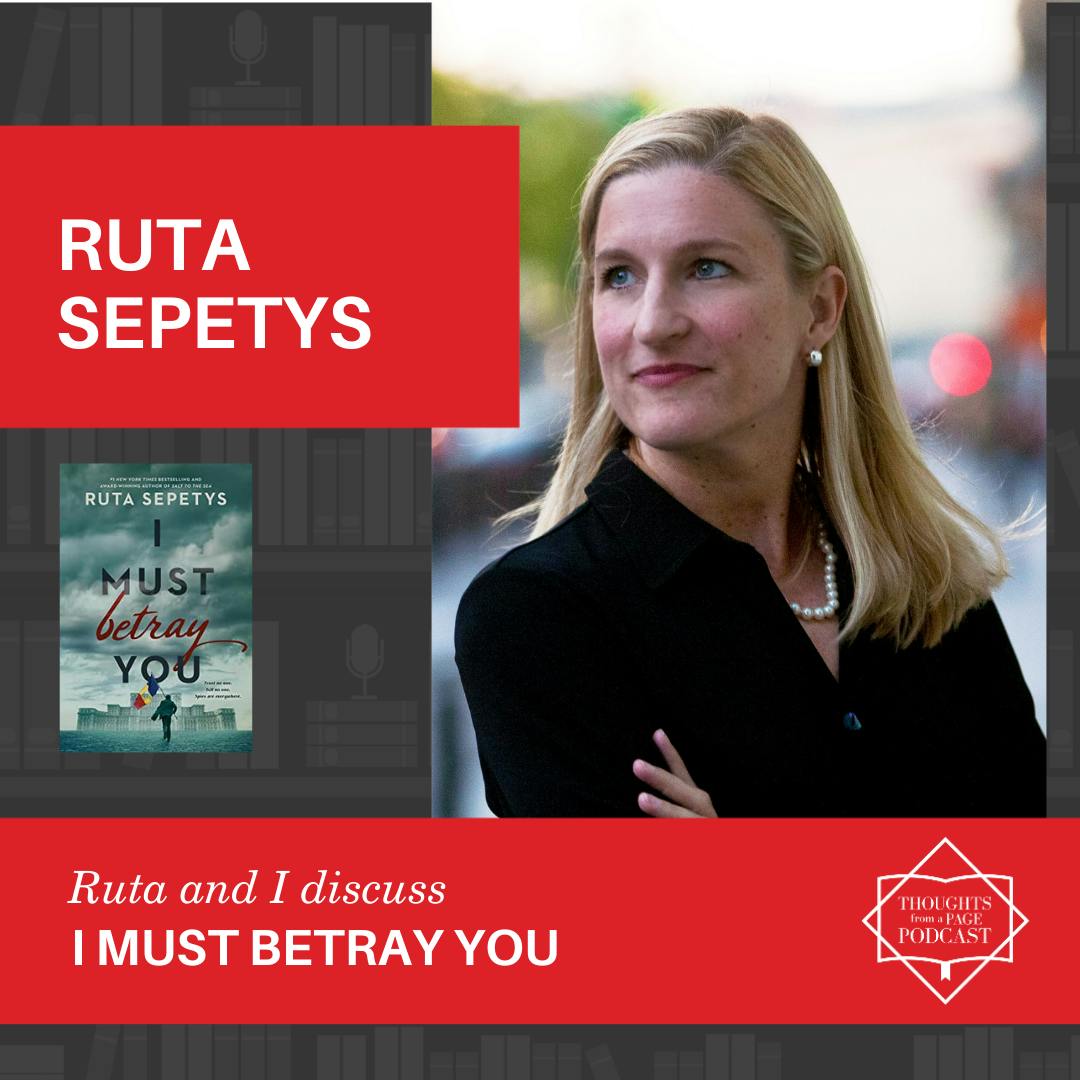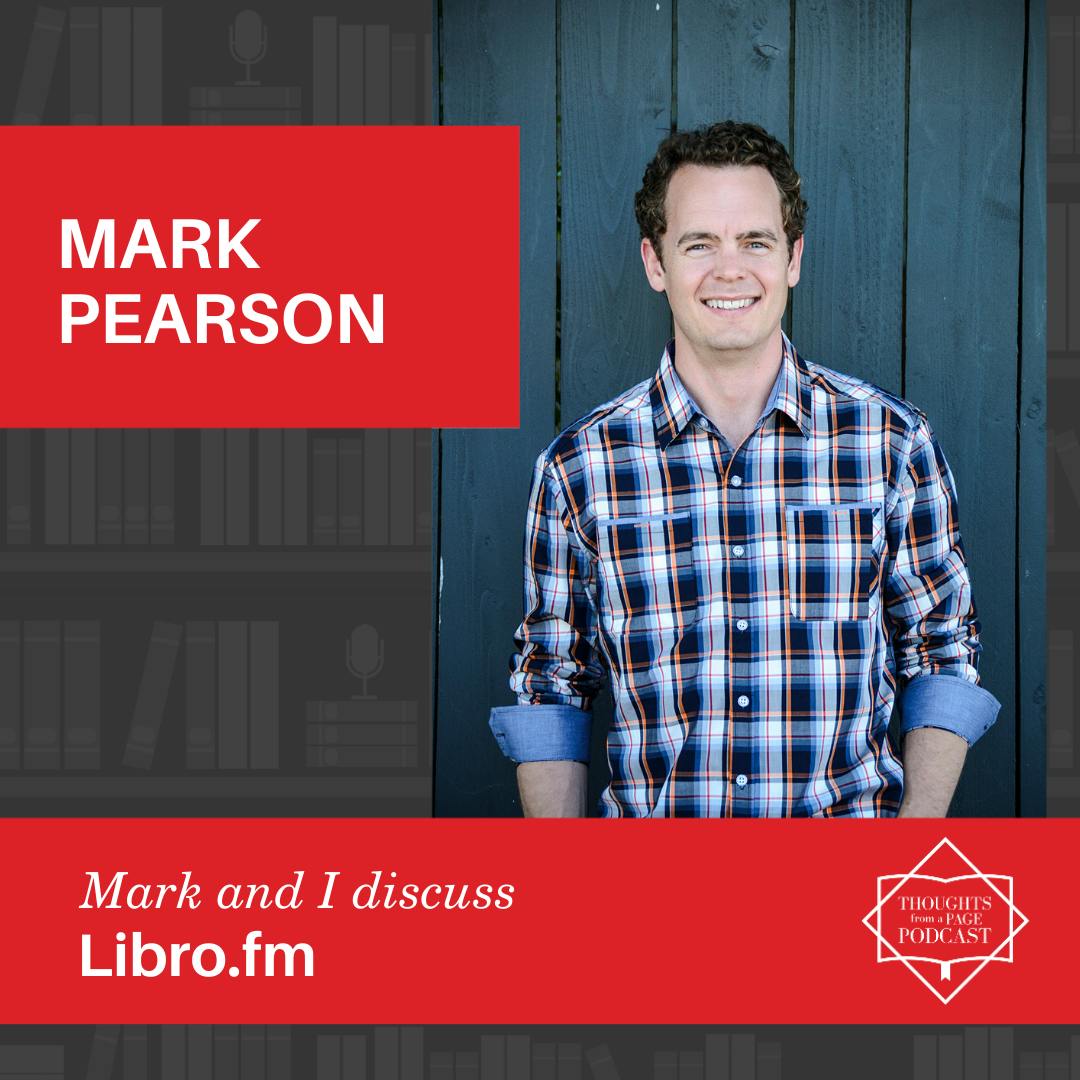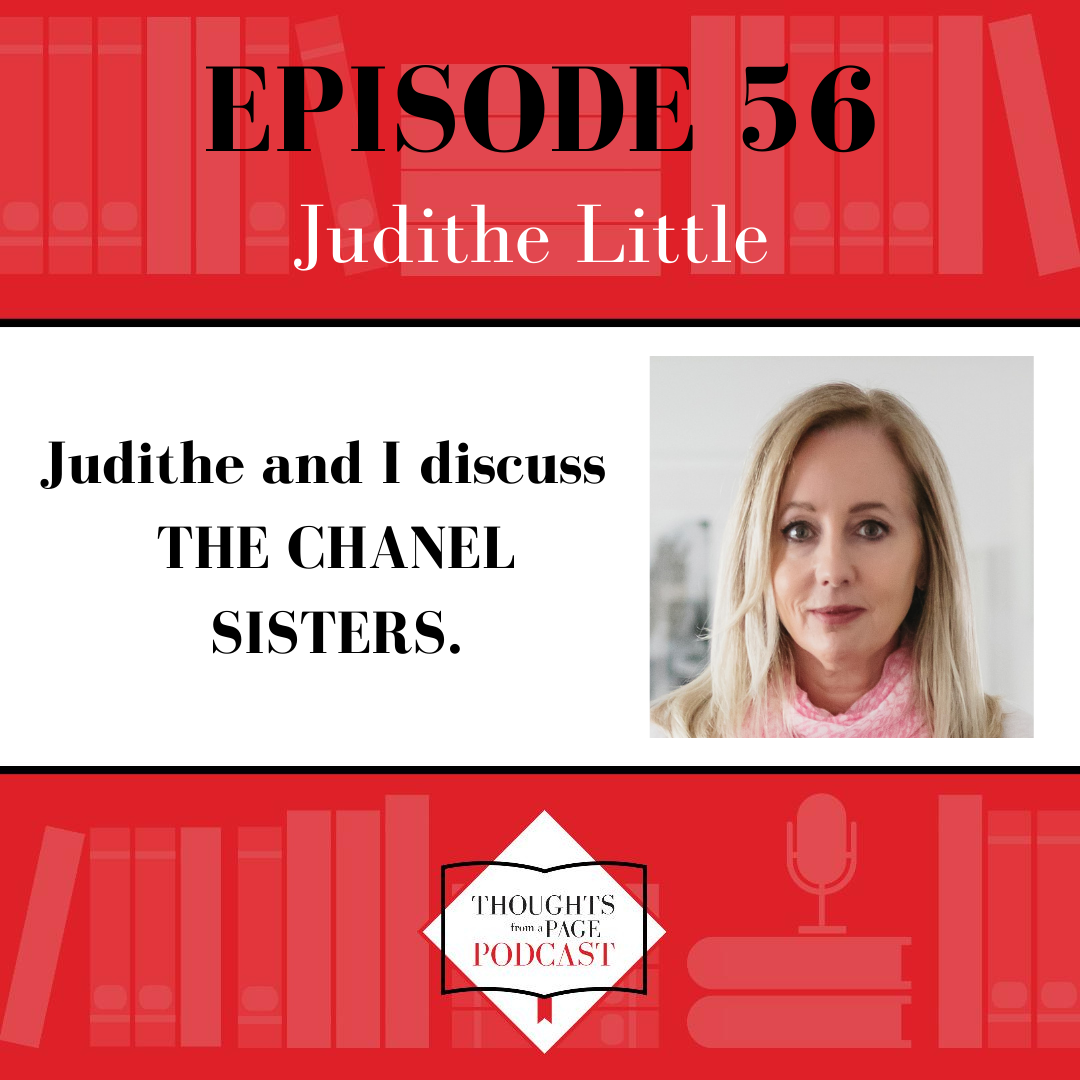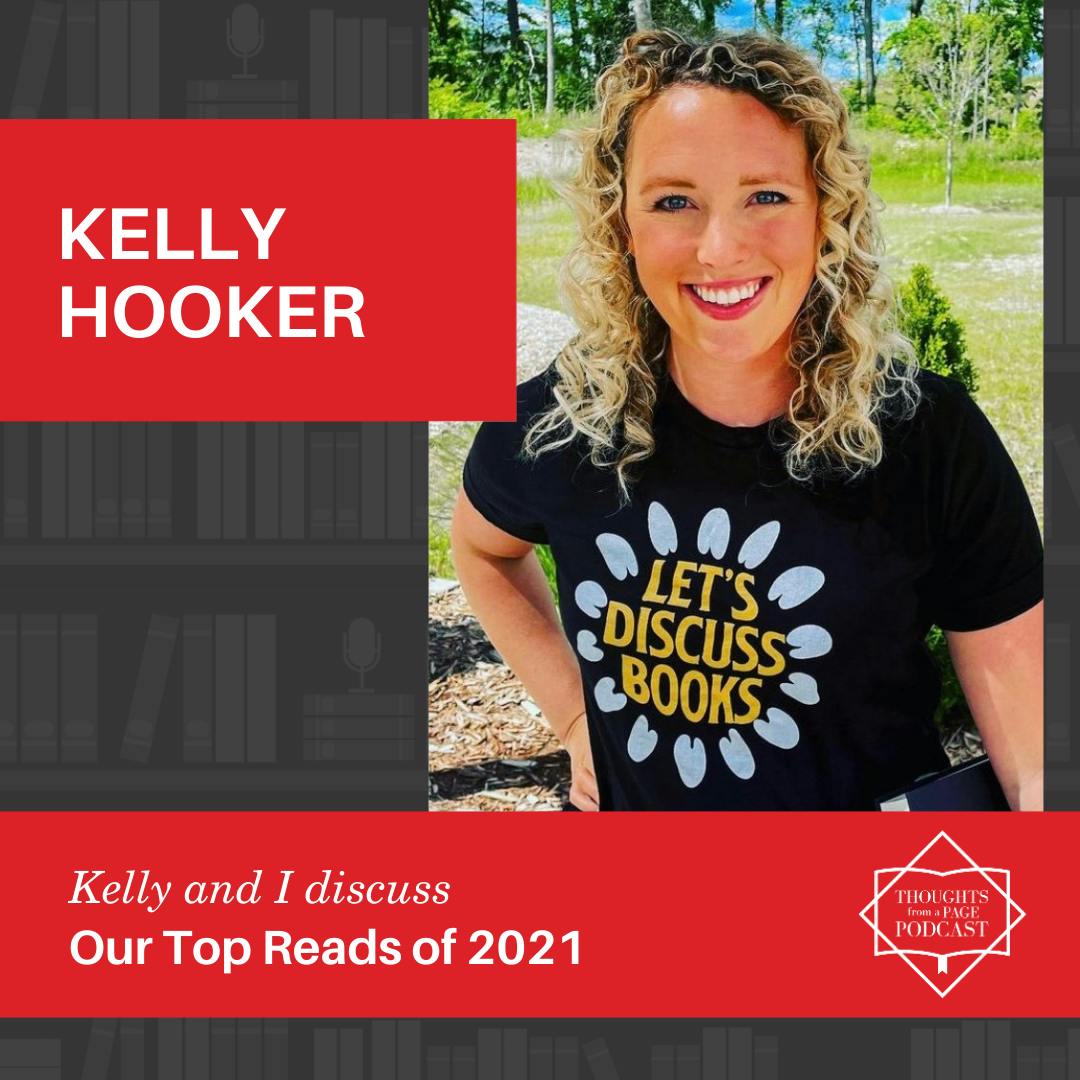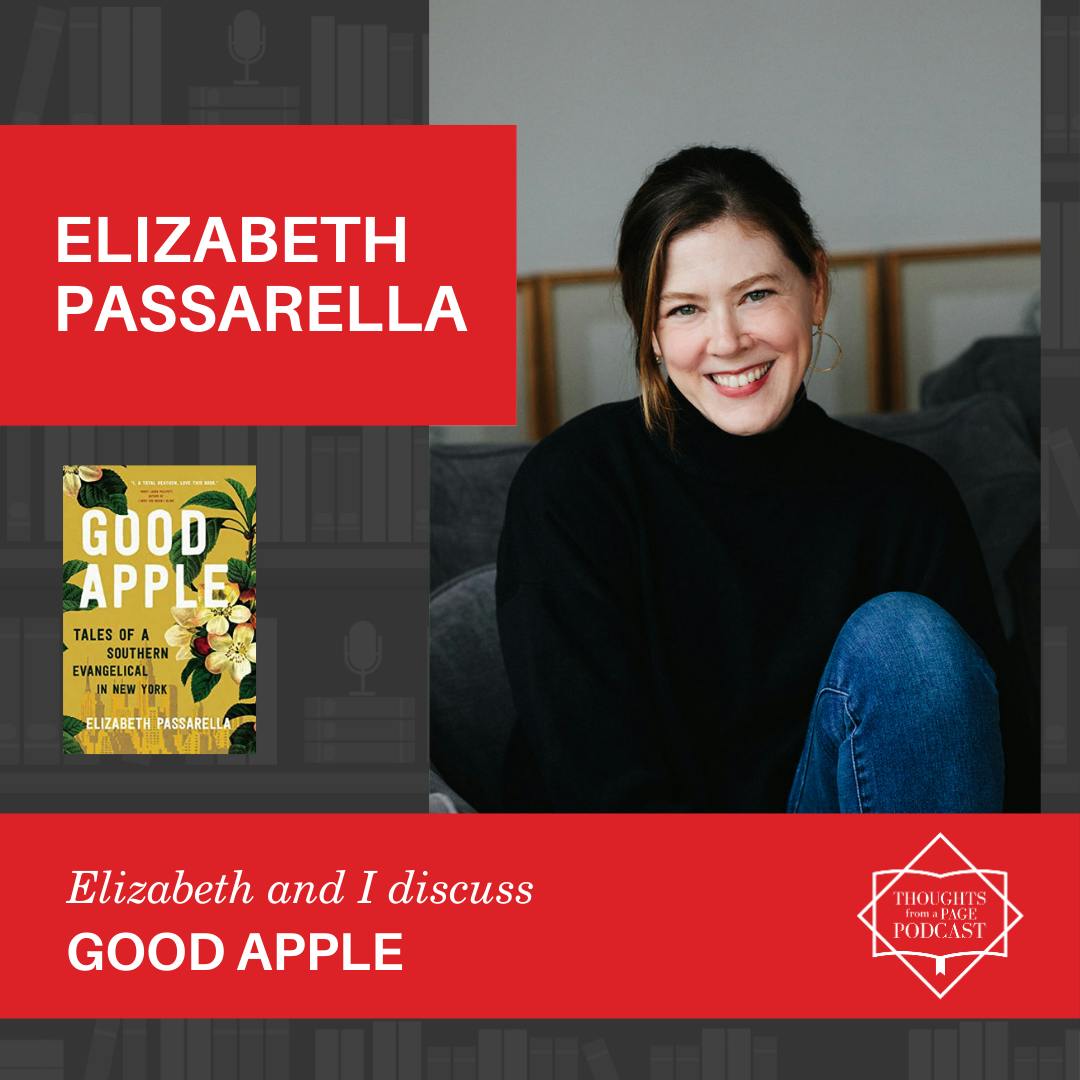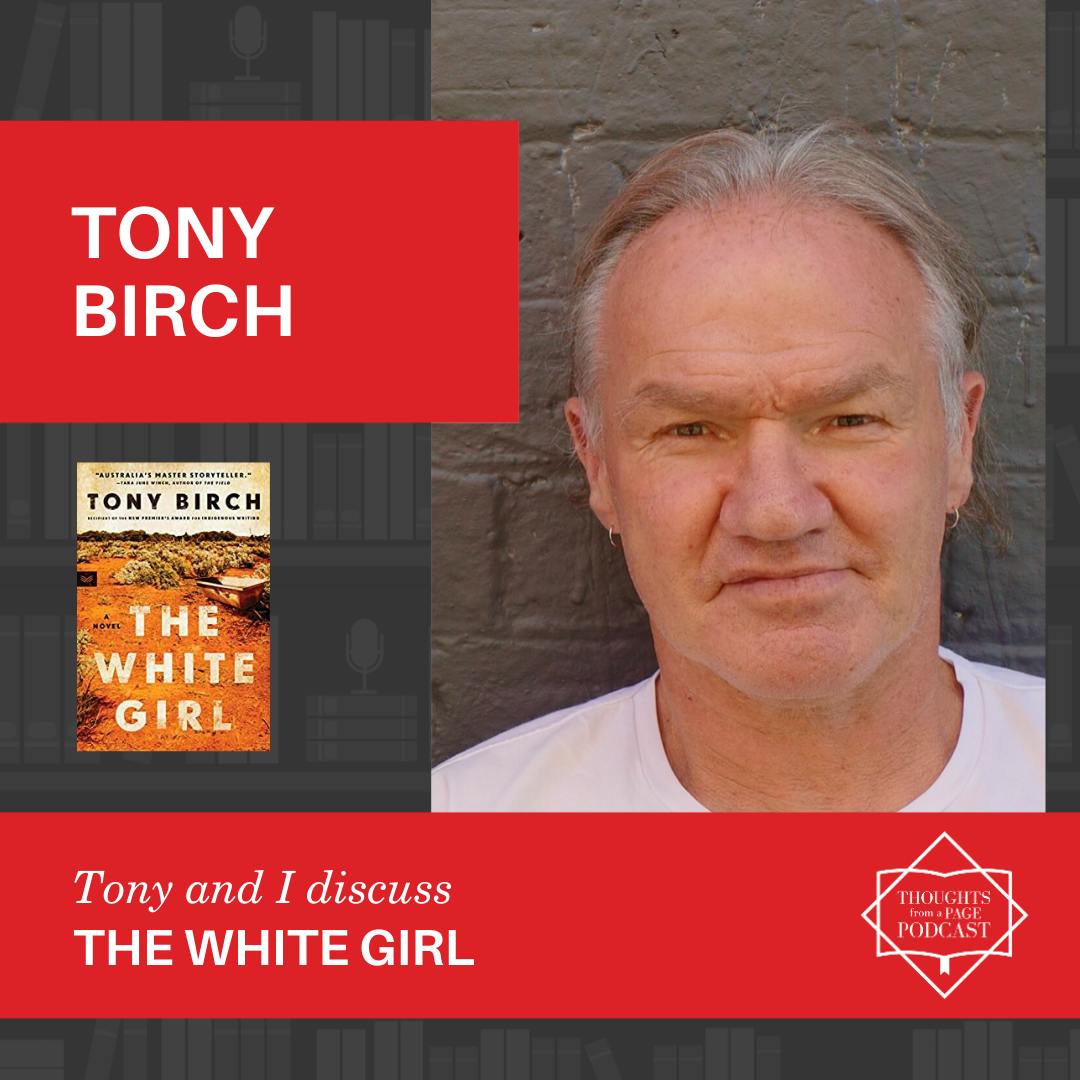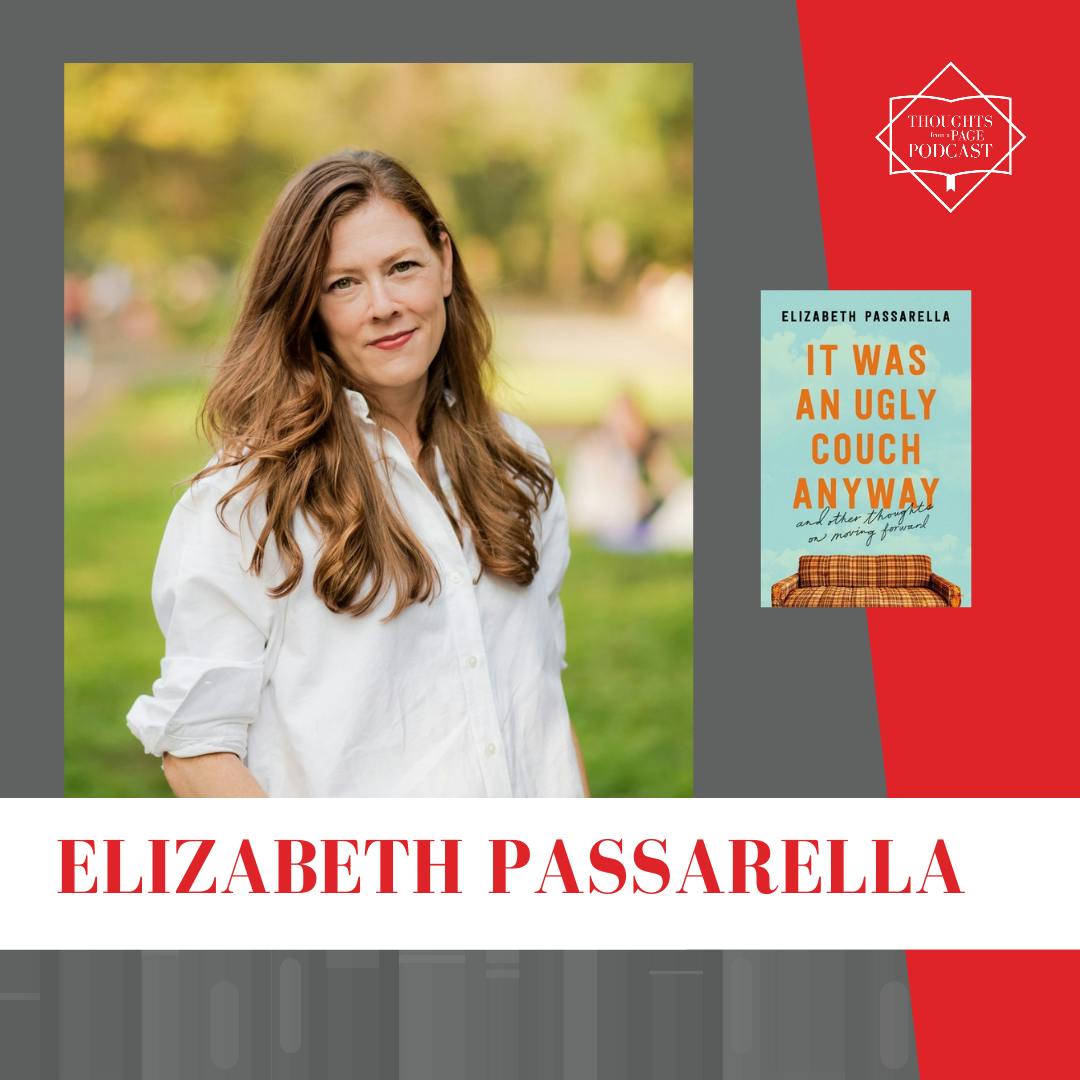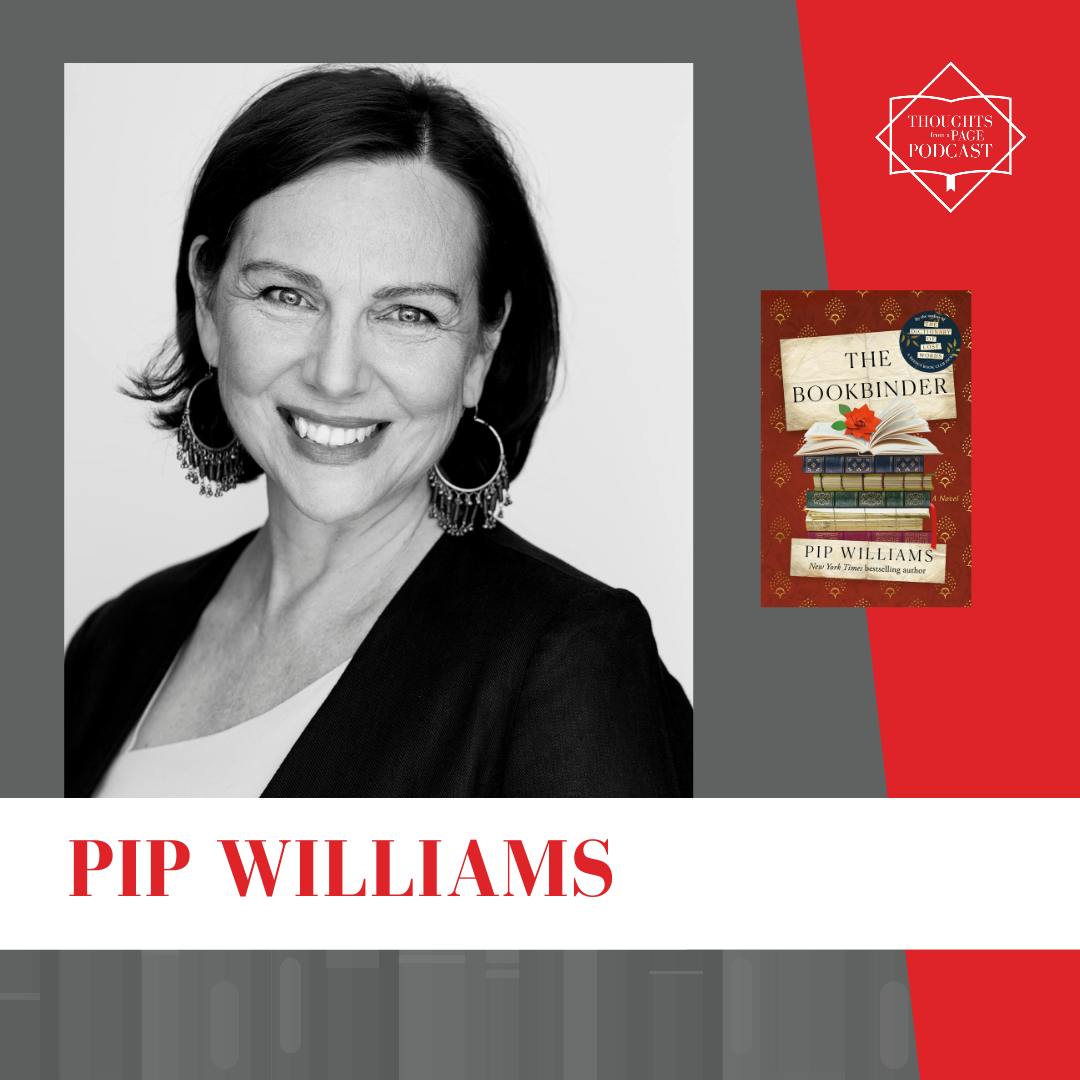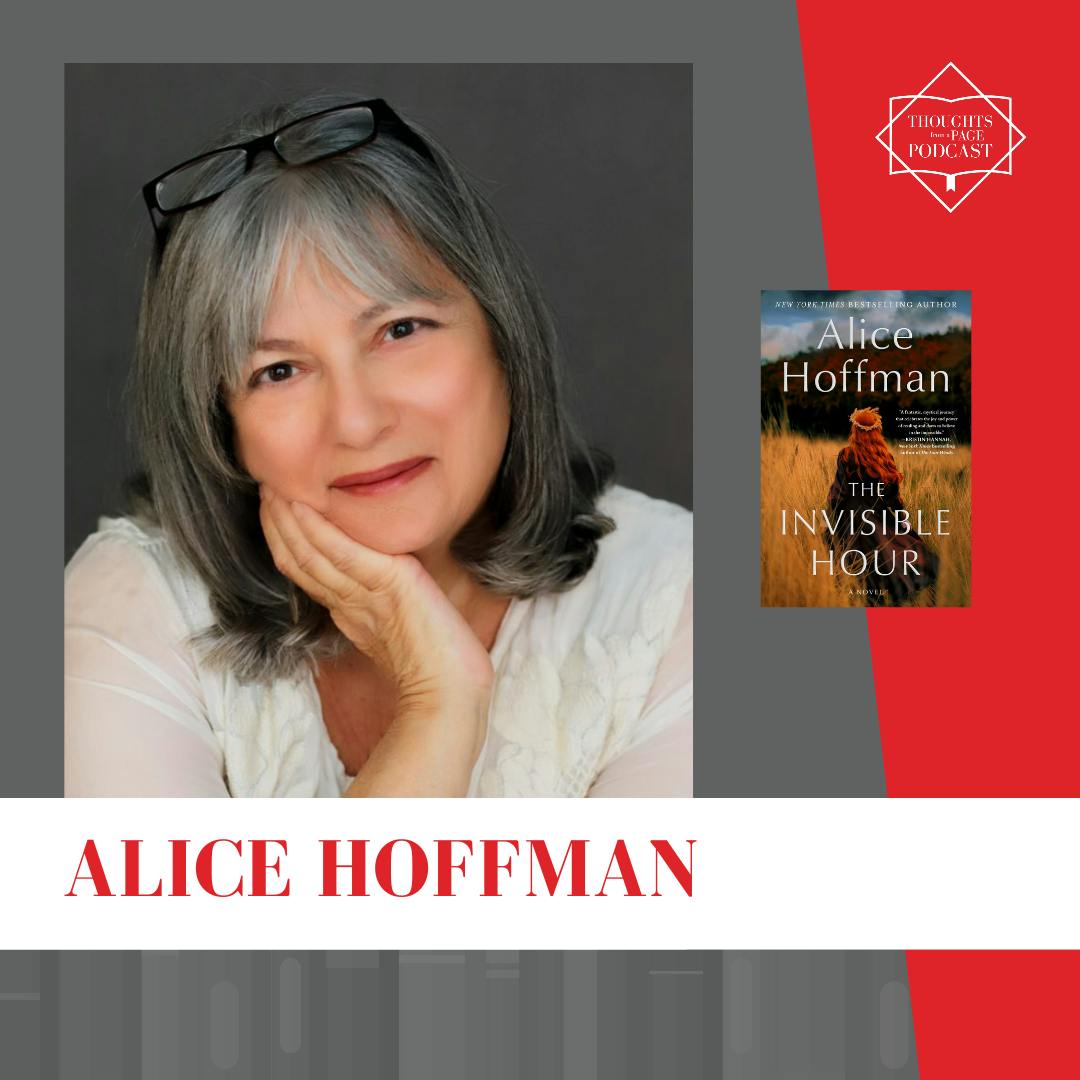
Ehsaneh discusses her debut novel A Door Between Us, her desire to portray all sides of a conflict, writing about an event that is not frequently covered in literature, growing up in a Muslim/Mormon home, and what she hopes readers take away from her book.
Ehsaneh discusses her debut novel A Door Between Us, her desire to portray all sides of a conflict, writing about an event that is not frequently covered in literature, growing up in a Muslim/Mormon home, what she hopes readers take away from her book, and much more.
A Door Between Us can be purchased at Murder by the Book.
Ehsaneh’s 2 recommended reads are:
- Spring by Leila Rafei
- Bladebone by Ausma Zehanat Khan
SUMMARY KEYWORDS
people, book, Iran, folks, struggles, regime, Mormon, worked, story, moved, Muslim, parents, family, risks, green, support, writing, part, author
SPEAKERS
Cindy Burnett, Ehsaneh Sadr
Cindy Burnett 00:08
This is the Thoughts from a Page Podcast, where I interview authors about their latest works. Listen to what inspired this storyline, how their covers and titles were chosen, their personal connection to the story, and other fascinating tidbits about the author's themselves. My name is Cindy Burnett, and I love to talk about books. I can be found on Instagram and Pinterest at @thoughtsfromapage, and if you have any comments about the podcast or feedback for me, I can be reached through my website www.thoughtsfromapage.com. Today I am interviewing Ehsaneh Sadr about her debut A Door Between Us. Ehsaneh is an Iranian-American novelist and activist with a PhD in international relations. She has worked in various capacities on campaigns related to biking advocacy, Palestinian human rights, Iranian sanctions, and safe spaces for children in crisis. She currently works with the Silicon Valley Bicycle Coalition to create the culture and infrastructure changes needed to support a shift away from carbon-based modes of transportation. Ehsaneh lives in Northern California with her husband and two children. Thanks for listening, and I hope you enjoy the show. Welcome. Ehsaneh, how are you today? I'm really excited that you're here.
Ehsaneh Sadr 01:24
I'm great. And so excited to be here. Thank you so much for having me.
Cindy Burnett 01:29
I'm so excited to have you. I cannot wait to talk about A Door Between Us.
Ehsaneh Sadr 01:34
Yay! (laughs)
Cindy Burnett 01:36
Well, why don't we start out with you telling me a little bit about it?
Ehsaneh Sadr 01:39
Yeah. A Door Between Us is basically adult fiction. It's about these three very different people who are basically navigating their way through some very complicated family dynamics. And then overlaid on that is this incredibly politically tumultuous time, which is 2009 Iran, which is right after these massive political protests that followed this election that a lot of people felt was rigged to ensure the re-election of the candidate that the regime favored.
Cindy Burnett 02:11
So where did you get the idea for it? What made you want to tell this story?
Ehsaneh Sadr 02:16
Yeah, so I have a very personal connection to Iran. My parents moved our family. I was born in California. But we moved back to Iran, right around the time of the revolution. My parents were big supporters and very hopeful about the revolution. Unfortunately, things didn't work out so well. So by the time I was going into third grade, or so, my parents had had enough, a lot of their friends and family had gotten in trouble with the regime in different ways. And so we ended up moving back to Salt Lake City. So I had that experience in Iran as a young person. And then as an adult, I got to go back after I finished my undergraduate degree, and I lived and worked in Iran for another three years as an adult, had a lot of just fascinating experiences. My family is not super, in Iran, is not super religiously conservative, but I worked at the Ministry of Jihad Against Poverty, with a lot of folks who were spending time in villages trying to make sure that poor folks in Iran had access and economic opportunity. There's a really big spectrum of views. And so it was an opportunity for me to have all sorts of questions. What does it mean to be a supporter of the regime? How does one justify some of the uglier aspects? How have folks thinking evolved over time? And so these are some of the kind of folks and characters that I really enjoyed meeting, and was excited always to tell their story. Because these are not stories that we get to hear in the U.S. very often. This was all kind of even more intense, when I met and married my husband, he's from a family that not only is kind of regime supporting, but has a number of people in it that have worked for the regime, so were really part of the regime. And then it gave me entree, not only into even more intense conversations around stuff like this, but introduced me to this family life that in some ways seem really different, perhaps, but in other ways, surprisingly, to me was very similar to say, family life in Salt Lake City. So this experience of seeing something that seems so different, and then realizing it's not that different, after all, and wanting to carry that back and share that with folks in the U.S. who really don't have these experiences was what was exciting to me.
Cindy Burnett 04:31
Is your husband's family now in Iran?
Ehsaneh Sadr 04:34
Uh huh. Yeah.
Cindy Burnett 04:35
So have they read your book?
Ehsaneh Sadr 04:37
Yeah. Two of my sisters-in-law read the book.
Cindy Burnett 04:39
And what did they say?
Ehsaneh Sadr 04:41
I think what was most exciting or gratifying for me was that they felt like I got the story right, that I did a fair job of representing what that experience of 2009 felt like to families that generally were regime supporting but then went through this experience where perhaps their thinking changed or evolved, in part because of the government crackdown after the election.
Cindy Burnett 05:07
Well, I think that is a very relevant topic to what we're going through in the United States right now, because the country is so split, similar to a little bit of what you're describing about Iran in 2009 and forward, but it's a great idea to promote every side of the story. Because I do feel like that is what is missing a lot today here in the U.S., is that we are all a lot more similar in terms of just the way we function at home and what people are doing. And it's hard to not just make the other side with their opposing views the enemy. And so I think humanizing everybody is a really great step toward maybe trying to understand better.
Ehsaneh Sadr 05:46
Yeah, I agree 100%. And that was really one of my hopes with this book is giving folks an opportunity to see a group of people that is often demonized and realize, Oh, that's not that different. And it also It doesn't mean that we're okay with everything that is represented, or the all the choices that folks make, we can get to know those choices much better and see how someone would make that choice and still say that does not feel okay, to me, that does not feel ethical, I have a line that I won't cross with this. But I see how that person is making that choice. And that makes it easier for you to have a conversation with that person that kind of pulls them back over, perhaps there's some increased understanding. So I don't want to say that understanding means that we need to be, I don't want to tiptoe towards complicity or an apology for behavior that's completely unacceptable. But I think that piece of understanding is really important.
Cindy Burnett 06:43
Absolutely, I completely agree with you. I definitely was not meaning that you become comfortable with things that are outside of your ethical boundaries. It's more the understanding why people might believe what they believe versus you becoming comfortable with those beliefs. But I just think that here in the U.S., especially as we're approaching this election, people tend to just automatically demonize the other side. And I mean, I have friends who have all sorts of beliefs, and you just want to maintain your friendships and understand those relationships are important, even if I don't necessarily share any or all of the same beliefs that they do.
Ehsaneh Sadr 07:20
I totally agree with you. And, you know, my I wasn't at all reacting to kind of thinking that you were going in a particular direction, it was more I feel like, I know, people who have risked and sacrifice so much and are currently in jail in Iran. And the last thing that I want to do is say that what the regime is doing is okay, just because I'm sharing the perspective of folks who do believe in the regime. I want to share that perspective. But I also am very clear about what's not okay about what's going on. So yeah, so I was sharing that more as a way of, I worry about this book, perhaps being seen as too soft on the regime. And there's a reason that I'm doing that, which is to give people an entree into that and still be able to say that what's not okay.
Cindy Burnett 08:07
No, and I think that makes perfect sense. And I think that that's a great way to do it. And that's such a tricky conversation all the way around. So I think that the way you handled it was exactly right.
Ehsaneh Sadr 08:18
Well, it's so great to hear that because that was definitely something that I was trying to balance. And I hope I got it right. (laughs)
Cindy Burnett 08:25
(laughs) That's always the hard part. And obviously, different readers take away different things, too. So I mean, I think as long as you're getting it out there and trying to just humanize, then that's all you can do. And once it's out there, it's out there.
Ehsaneh Sadr 08:36
Yeah. Yeah.
Cindy Burnett 08:37
What's it like traveling to Iran these days? I should probably know the answer to that. But I don't. I mean is it easy to come and go?
Ehsaneh Sadr 08:44
Yeah, so we traveled to Iran quite frequently. Once we moved back here, we were going every two years. But then we haven't been back since 2016 for a variety of reasons. My experience before 2016. There's no direct flight between the US and Iran, because there are no diplomatic relations between the US and Iran. So you're always traveling through a third country. But other than that, it's just like catching a flight where you have to have a connecting flight. So you're either going through Europe or you're going through somewhere in the Middle East usually.
Cindy Burnett 09:17
That makes sense on the traveling. It's just not something I was really familiar with. Well, I love your cover, and I would love to hear more about how it came about.
Ehsaneh Sadr 09:25
I'm thrilled that you love the cover because I had to say I absolutely fell in love with a cover, and it was totally not my concept. So I have to say just generally I've had a wonderful experience with Blackstone. They've been so professional. They've been so responsive, so wonderful. And the process of the cover design was especially fun and exciting. I talked to the graphic artist before she even started, and I sent over a bunch of different pictures. I wanted her to have a real feel for what the streets of Iran look like after the election in 2009. And just how do people dress? What are the streets look like? What do homes look like so that she would kind of steep herself in that as she was thinking about the cover. And then my initial idea was like, okay, we're going to have a group of people on one side that are like pro-regime, pro-Ahmadinejad. And then we're going to have a group of people on the other side, who are pro-Mousavi, and then they'll kind of meet up in the middle somehow. And she was kind enough to kind of do that out for me. And it just looks so much more kind of confrontational and angry and scary than what I am hoping is kind of the takeaway from the book. And then she just tried a few other things that she put out. And when I saw this, the green fabric that is symbolic of the Green Wave, and the Green Movement, and all the scarves and banners that everybody was taking out into the streets right after the protests began, it just immediately resonated. And I was so excited in that beautiful skyline of Tehran in the background. It makes me miss Iran even more. So I just feel like she got so much, and it just immediately resonated for me. And then we just went from there.
Cindy Burnett 11:05
Well, the green scarf is so eye catching. And then I agree with you. I love the backdrop of the city. Tell me a little bit about why the green. Like I know and understand the Green Movement and the Green Wave. But why did they choose green?
Ehsaneh Sadr 11:17
That's a great question. And I don't know exactly. Mousavi's campaign early on adopted the color green as just their campaign symbol. Now there is a lot of Islamic symbolism and Muslim imagery around the green and the color of the Prophet and the color of the descendants of the prophets. I don't know if he was choosing that color, in part because of that. But what happened is that after the crackdown on the protest, this color of the campaign turned into the color of protest. And so that was kind of what people were using to show that they were for Mousavi, and against what the regime was doing to people in the streets.
Cindy Burnett 12:00
Got it. I was curious about that. And figured there had to be some reason they had chosen green. And I'm glad you explained it. Thank you. What are three major themes within your book that you want to highlight and make sure that readers are aware of?
Ehsaneh Sadr 12:13
Yeah, so there's a lot going on. But I would say the things that I'm really hoping folks will get is first, even in the worst institutions, or the worst situations, there are good people that are trying to do the best they can with whatever situation they're in. And I would say one person that really does kind of, exemplify this as Sadegh in his attempts to kind of figure out the right path, even in the midst of being part of the best CG unit that is perhaps being led in ways that don't sit well with him ethically, as he looks at it more closely. Secondly, I'd say just kind of a general broad theme is that identity markers like culture, ethnicity, these aren't necessarily the best guides to determining who's good, who's evil, who's similar to you who's different from you. I mean, I think anybody who's had the opportunity to have a foot in two different cultures, or two different worlds, you'll meet people on both of those sides, you're like, Oh, my God, you guys will get along. So great. And you'll meet people who just you don't want to have anything to do with them on either side of that divide. And it doesn't have a whole lot to do with their ethnic identities or cultural markers, it's just a lot more about are they kind of fun to be around, or those kinds of things that don't stand out to you when you first look at them or think about them, but just things that come up as you get to know them. And I guess the final thing that's really exemplified by the story of Azar is that taking a stand against oppression and injustice is scary, and it carries real costs. I feel like sometimes are Hollywood versions of people standing up against oppression, even if it's about racism, or human rights issues, we always end up with kind of a happy story at the end. Unfortunately, in real life, people who engage in these struggles for human rights, you fail, and you fail, and you fail, and you fail. And maybe there's a glimmer of hope. And maybe if you're lucky in your lifetime, like things move forward. And yet, it's still worth taking those risks and pushing the world in the right direction in the hope that eventually we kind of get there. And not that again, as people are taking these risks, I mean, Azar at one point then has to decide what is the moral choice? Is it continuing to push and take these risks in the hopes of getting to this country in democracy that she's hoping for? Or is her first responsibility to her children as she putting her children at risk by doing this, and I think recognizing that these risks are real and we have to weigh our responsibilities and, and recognizing that people who take those risks really are the heroes of our time, is something that I also wanted to share.
Cindy Burnett 14:57
And I think that is such an important line of thought. That makes me think of World War two and all of the people that were like the French Resistance and the various resistance trying to oppose the Nazis, and definitely you almost had to choose between your family or not having a family trying to fight back. And definitely, you know, many people lost their lives in the pursuit of freedom. And I think you're right, that it isn't something that you can just do it and succeed that it takes many people and a lot of times many years.
Ehsaneh Sadr 15:28
Absolutely. And I would say World War Two, to some extent is one where we kind of won in the end, right. And sadly, in history, we have all sorts of times where those kinds of decisions and fights for human rights took place. And and we didn't necessarily win, and we have things that are still ongoing. So it's not to discourage people, it's to kind of be realistic about expectations, when we engage in human rights struggles to understand that they're going to be long, but they do take a toll and that they're still worthwhile. And we need to support the folks who are out there on the front lines.
Cindy Burnett 16:04
Well, and the other movement that that makes me think about is the Black Lives Matter movement, and definitely goes toward what you're saying. I mean, that has been a long struggle, and we're still not there. So I definitely think you're right, and that people need to realize that sometimes you may not even see it in your lifetime, but continuing to be on the side that is important and to support it is a great cause.
Ehsaneh Sadr 16:26
Yeah, absolutely. And recognizing in those situations where you want to be an ally, to folks who are facing that oppression, being really aware of the toll that takes on folks who are fighting that oppression and have that as a part of their lives every day, it just helps us to want to be involved to kind of support and spread that burden a little bit and give what I can to those struggles to take a little bit of that off of other folks' shoulders as well.
Cindy Burnett 16:52
I think it's hard when we're living here and the lives we're we're living in the freedom we're used to, to even really have any concept of what it's going to be like going through something like that.
Ehsaneh Sadr 17:02
I think you're totally right. And I think it's been interesting over this past year, as I've seen more people in my mom's family or my neighbors or other areas of life where I feel like folks are tuning in and thinking about these things in a different way. And that's something that for me is exciting and hopeful. In people seeing it's come to our country, it's something that people are seeing more visibly than they have perhaps in the past. And so I'm hopeful that you know, maybe this allows folks to kind of think, even beyond this country, but what's going on in other countries, as well, as we're able to kind of see it here and then empathize a little bit more.
Cindy Burnett 17:43
Right, almost not necessarily be able to put ourselves in someone's shoes, because the struggles are all very different. But to have a just a better understanding of maybe what might be happening over there.
Ehsaneh Sadr 17:54
Yeah, absolutely. Every struggle is unique. Everyone's history is and everyone's experience of oppression is unique and different. And we need to learn those and support them. And then there's an opportunity for different struggles to kind of learn about one another and support one another as well.
Cindy Burnett 18:10
The fascinating thing to me about some of these struggles, as I get older and learn more about them, is how long some of them have been going on. You have to really go back and understand the history, sometimes centuries, to really have a better understanding of exactly what the dilemma or the conflict is.
Ehsaneh Sadr 18:28
Absolutely. I mean, I think of my parents who that made the decision with three young children to go wade off into the middle of a revolution. My father was there; he just felt like he had to be a part of what he was seeing folks struggling in the streets against the Shah. He was there as part of those protests until the Shah left and was there when Khomeini came back. My mom then went over to join him with the three kids. He had this really strong feeling of like a we're on the cusp of democracy. This is like what our founding fathers experienced. And so that the struggle that kind of for them began then, and then the stumbling blocks along the way and how it didn't go the direction that they'd hoped for. And then you see the Iranian people, again, and again, kind of trying to hold their leaders accountable and move them in the direction that was the original hope of the Iranian Revolution. The struggle that's gone on for so long, and we haven't gotten there yet. And yet, there are people who continue to have hope and continue to fight for it. And that was something that I just really wanted to highlight in the book as well.
Cindy Burnett 19:37
Well and you have an interesting background, so your religious background is Mormon Muslim, is that correct?
Ehsaneh Sadr 19:42
Yeah. So my parents, my mom is Mormon. Most of her family right now is in Salt Lake. She's one of 12. My dad is Iranian Muslim. And one of the things that as a young person I perhaps didn't appreciate, but as an adult, I both admire in my parents and I'm grateful for the opportunity to have grown up this way, is that many people who I think come from different religions and marry, it's kind of a rejection of their religious communities. And then they're kind of going off and maybe a little bit less religious, but my parents, they really retained their identities and their connections to their communities. So my father continued to be a strongly practicing Muslim, my mother continued to be a strongly practicing Mormon. And what we got to do is go to the church, and then go to the masjid. And not, you know, because they were so involved it was this was not just a Sunday affair, this meant that we were going to Du'a-e Kumail on Thursday nights. So we had all sorts of opportunities to kind of really steep in the two different religious communities. I have wonderful, wonderful memories of both of those communities. I think the thing that was hard as a young person is you just want to fit in, you kind of want to be like everybody else. And that was not, (laughs) not really a possibility, whether I was with just my American friends or Mormon friends, or Muslim friends, but I think everybody has something like that, that they feel is so different. And that often ends up being your superpower as you become an adult, because it's something that folks are interested in.
Cindy Burnett 21:12
No, that's true. And then you have siblings. So did any of you all choose one or the other? Or if you just sort of stayed with both?
Ehsaneh Sadr 21:20
That's a great question. I have five younger brothers. And out of all of us, I would say, for me, I kind of was closer to the Mormon community in my teens. And then as a young adult, I was closer to the Muslim community. Once I kind of started my own family, we kind of moved to a more agnostic, atheist almost, moving away from religion. For my brothers, you know, really, I have one who is very strongly rooted in the Muslim tradition, another who was more strongly rooted in the Mormon tradition. And then the rest are kind of somewhere in between.
Cindy Burnett 21:57
It's just kind of interesting when people have backgrounds like that, just to see which way they end up going.
Ehsaneh Sadr 22:02
Yeah. (laughs) Kind of contest between mom and dad could line up on their side.
Cindy Burnett 22:08
(laughs) Yeah, exactly. I won! I've got four, you've got two. (laughs) How long did it take you to write this book?
Ehsaneh Sadr 22:15
Yeah, so I started writing in 2013, after I finished my dissertation, and this was kind of the fun book. And as I was writing my dissertation, which was great in its own way, but also much drier than this, it was kind of where my imagination would go when I was taking a little break or a mental break from writing. And then I really started writing it in 2013. And I finished writing it, I guess about, I want to say, like two or three years ago. So what does that make it like four years?
Cindy Burnett 22:44
That was one of the things that surprised me so much early on in this process for me, when I started getting more involved in reviewing, and everything, was how long it takes from the time from getting an agent to the book actually getting published. I had no idea it was that part alone took so long, usually.
Ehsaneh Sadr 23:01
Yeah, absolutely. And I have to say, I was so lucky in the agent that I found who just really believed in the book from the very beginning, and then offered some really, really helpful ideas about how to strengthen it. So then that was kind of its own process of editing. And then when it was ready to go out, one of the things that we struggled with in looking for a publisher is folks felt like it kind of sat between commercial and literary. And I think part of it is, you know, you think about a book about Iran and some of the themes thinking of it as a more literary type of book. But then it actually kind of moves at a pretty fast pace that maybe is a little bit more commercial. And I don't have an MFA. I don't know that my like, strength is in the language that is often a part of literary writing, so and that that took a little while to find a publisher that that was excited about trying to figure out how to get the book out there.
Cindy Burnett 23:55
Yes, because that's another thing is how segmented the industry is in terms of a you know, wanting to put something in a box. It's a thriller, it's a domestic thriller, it's a rom com. So yes, I think when you have a book that doesn't necessarily fit solidly in one box, it's a little bit harder sometimes.
Ehsaneh Sadr 24:13
Yeah, I think that's right. And it's funny, because I actually think like, for me, some of my favorite books are actually those that fall into the middle of those types of categories. I mean, I really like a book that is fast paced, but also gives you some depth and some insight into what's going on within each character. And you see that character development. So for me, those are some of my favorite books that I like to read. So it was really interesting to me to see how hard it is for publishers that are used to publishing only one certain type of book to get their head around something that is something in the middle.
Cindy Burnett 24:45
That definitely is the case, and I agree with you completely. The books that that seemed to resonate the most with me frequently are books that are a little different. And so I think it's interesting then that that's sometimes the hardest ones to get published. Well, before we wrap up, I would love to hear what you have read recently that you really liked.
Ehsaneh Sadr 25:02
Yes. So I have just started the most incredible book Spring by Leila Rafei. She's another Iranian-American author, debut author, she has worked with refugees, she has worked in different parts of the Middle East. And this story comes from her time in Cairo during the Arab Spring. And I've just started it. But what is so impressive and amazing to me is I knew she had a story to tell just from her life experiences and things that she talked about. And this particular time is just such a fascinating time. But what was fun to see, it's just the the strength of language and character development that's already starting out in the first three or four chapters. So I highly, highly recommend that, and I'm just kind of on the edge of my seat reading that one. And then the other one that I'll recommend is Bladebone that just came out. And this is not a debut. It's by Ausma Zehanat Khan,, and she has written prolifically over the past five years or so, what's amazing, this is the last in a series. It's a fantasy series. That is for someone who has a connection to the Muslim world. There are all these Muslim themes and stories that are kind of turned on their head in a way. So you're seeing things from this brand new perspective, that's just absolutely amazing. She has this fantasy series, but she also has this other series that's a mystery series. And she's one of the few other authors I know of that has written about the Green Movement and the Green Wave. So in another book of hers, Among the Ruins, she had written about that. So anyway, so those are the two, Spring by Layla Rafei and Bladebone by Ausma that I'm really enjoying right now.
Cindy Burnett 26:40
I'm not familiar with either one of those, so I'm gonna have to go look them both up.
Ehsaneh Sadr 26:43
Yeah, they're awesome. You'll enjoy them. (laughs)
Cindy Burnett 26:46
Well, thank you so much for joining me today. I really, really enjoyed talking about A Door Between Us and just hearing all of the background information and everything. Thanks for your time.
Ehsaneh Sadr 26:55
Thank you so much. This has been super fun. And you're such a warm interviewer. So this has been a delight.
Cindy Burnett 27:01
Oh, thank you. Thank you so much for listening to my podcast. If you liked this episode, and I hope you did. Please follow me on Instagram and Pinterest at @thoughtsfromapage. Tell all of your friends about the podcast and rate it wherever you listen to your podcasts. I would greatly appreciate it. A Door Between Us can be purchased at Murder by the Book where I work part time, and the link is in the show notes. Thanks to K. P. Regan for the sound editing, and as always, I hope to see you next time.























